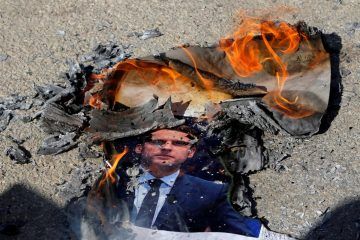Justin E. H. Smith in Foreign Affairs:
 France elected Emmanuel Macron president in 2017 as a symbolic barrier against the rising global tide of illiberal populism. Four years later, as the chaos fomented by U.S. President Donald Trump builds toward some sort of crescendo in the United States, domestic tensions in France threaten to define Macron’s leadership and legacy. The coronavirus pandemic is resurgent, leading the government to institute a strict new lockdown that will continue at least until early December; the mouvement des “gilets jaunes” (“yellow vest” protest movement) has been simmering since late 2018; and a crisis that began in 2015, when Islamist terrorists twice attacked Paris, never went away and has in fact returned with new intensity in recent months.
France elected Emmanuel Macron president in 2017 as a symbolic barrier against the rising global tide of illiberal populism. Four years later, as the chaos fomented by U.S. President Donald Trump builds toward some sort of crescendo in the United States, domestic tensions in France threaten to define Macron’s leadership and legacy. The coronavirus pandemic is resurgent, leading the government to institute a strict new lockdown that will continue at least until early December; the mouvement des “gilets jaunes” (“yellow vest” protest movement) has been simmering since late 2018; and a crisis that began in 2015, when Islamist terrorists twice attacked Paris, never went away and has in fact returned with new intensity in recent months.
These problems require divergent responses, and only an exceptional leader could navigate all of them with success. Macron has acquitted himself most poorly in those domains in which symbolism rings hollow and where concrete solutions matter most. The terrorism crisis and certain dimensions of the pandemic, however, underscore the importance of symbolism, backed by principle, in the face of nihilistic attacks and unprincipled abandonment by traditional allies.
More here.
